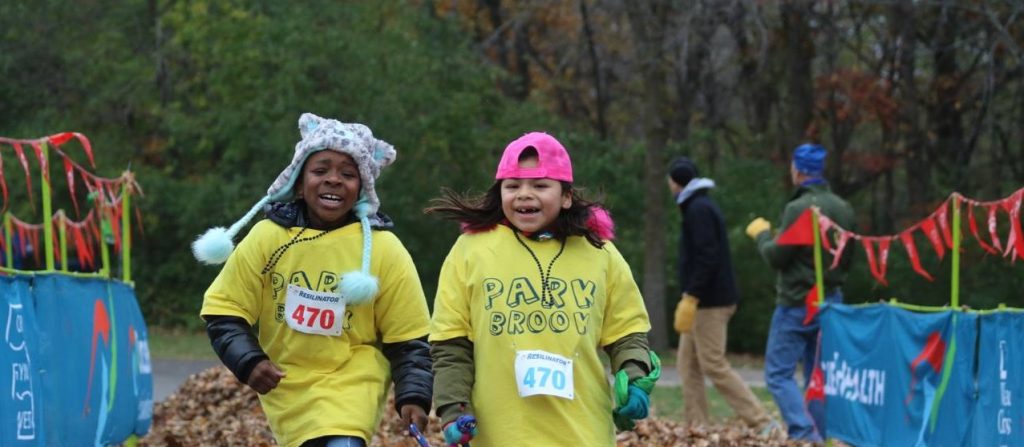
Kids and teens are sitting around a lot more than they used to. They are spending nearly seven hours a day looking at screens and consuming five times more sugar than the daily recommendation. Too much screen time, poor diet, and not enough physical activity are factors that lead to childhood obesity and unhealthy lifestyle habits that begin in childhood and last through adulthood.
Children’s Minnesota is partnering with CycleHealth, an initiative of the YMCA of the Greater Twin Cities that offers a kid-powered wellness platform that inspires kids to take ownership of their well-being and to create a new cycle of health. CycleHealth offers kid-friendly and fun-filled fitness challenges, motivational programs, and adventure races that keep kids active year-round.
Have fun with your family at the upcoming CycleHealth events
CycleHealth hosts world-class events and programs throughout the year, and partners with pediatricians and schools to reach kids across Minnesota with a lifestyle of kid-powered wellness that lasts a lifetime. You can sign up your family for the next CycleHealth event:
The Resilinator
Sunday, October 28
1 p.m.
Highland Park Reserve in Bloomington
Register Today!
The Resilinator is a fun adventure race with obstacles and challenges that kids and their buddies conquer together. Once registered, kids are prescribed a program to prepare for the adventure fitness challenge and to track their progress in a fun way. For more information about the Resilinator, and the full list of Cycle Health events, visit www.cyclehealth.org/events.
Raising fit kids
Combining regular physical activity with a healthy diet is the key to raising fit kids and inspiring them to lead a healthy lifestyle. Here are some tips for raising fit kids:
- Help your kids do a variety of age-appropriate activities.
- Set a regular schedule for physical activity.
- Make being active a part of daily life, like taking the stairs instead of the elevator.
- Set limits on the time spent using screens, including TV, social media and video games.
- Embrace a healthier lifestyle yourself, so you’ll be a positive role model for your family.
- Be active together as a family.
- Keep it fun so your kids will come back for more.
The many benefits of exercise
Kids can benefit from regular exercise in a variety of ways. Organized team sports and activities offer benefits such as social skills development, motor skills development, improved academic outcomes, increased confidence, and more. Exercise doesn’t need to involve participation in an organized sport. It means playing and being physically active. Kids exercise when they have gym class at school, during recess, at dance class or soccer practice, while riding bikes, or when playing tag. As kids try a variety of exercises they learn which activities are most fun and interesting to them, which will help influence healthy lifestyle choices throughout their life.
Active kids will have:
- Stronger muscles and bones
- Leaner bodies
- Less risk of becoming overweight
- A lower chance of getting type 2 diabetes
- Lower blood pressure and blood cholesterol levels
Besides enjoying the health benefits of regular exercise, fit kids sleep better and they are better able to handle physical and emotional challenges.
How much exercise is enough?
- Kids and teens should get 60 minutes or more of moderate to vigorous physical activity daily.
- Toddlers and preschool children should play actively several times a day. Toddlers should get at least 60 minutes active play every day and preschoolers should have at least 120 minutes active play every day. This time should include planned, adult-led physical activity and unstructured active free play.
- Young children should not be inactive for long periods of time—no more than 1 hour unless they’re sleeping or eating. And school-age children should not be inactive for periods longer than 2 hours.